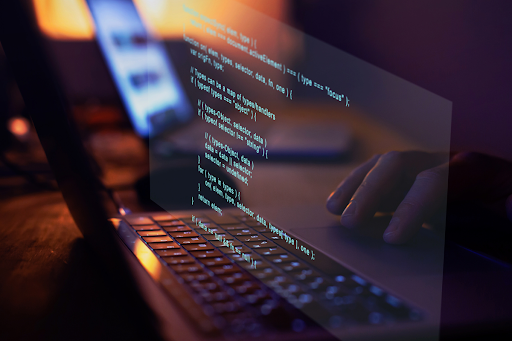Have you ever heard someone use “coding” and “programming” interchangeably and wondered if they’re really the same thing? Well, you’re not alone! While these terms are closely related, they’re actually quite different. Coding is like writing a recipe for a computer, while programming is like planning a whole meal. Let’s dive into the exciting world of tech and uncover the key differences between coding and programming.
Difference Between Coding And Programming
- Coding is about writing instructions for computers, while programming involves planning and building complete solutions.
- Coders need to know different coding languages, but programmers must understand how to solve problems and design systems.
- Coders use basic tools like text editors, while programmers use advanced tools like Integrated Development Environments (IDEs).
- Coders focus on specific tasks, whereas programmers handle broader responsibilities, including project management.
- Both coding and programming offer exciting career paths, but they require different skills and education.
Defining Coding and Programming
What is Coding?
Coding is essentially about turning our ideas into a language that computers can understand. You can think of it as giving instructions to a computer. By using languages like Python, Java, or HTML, you tell the computer what actions to take. Coding is the foundational step in building software, apps, and websites. You don’t need any fancy tools; a basic text editor is all you need to get started. If you’re new to this, coding is a fantastic way to explore the tech world.
What is Programming?
Programming takes coding to the next level. It’s not just about writing instructions but also about planning and designing a complete software solution. Programming involves using various tools like analysis software, modeling programs, and testing frameworks. A programmer needs to have a good understanding of coding, but they also need to know how to manage and organize their work. Programming is more complex and requires a deeper knowledge of software development.
Key Differences in Definitions
While coding and programming might seem similar, they are quite different. Coding is about writing lines of code to perform a specific task. On the other hand, programming is about creating a full-fledged software solution. Here’s a quick comparison:
| Aspect | Coding | Programming |
| Definition | Writing instructions for computers | Creating complete software solutions |
| Tools Needed | Text editor | Analysis tools, modeling programs, testing frameworks |
| Skill Level | Basic knowledge of a programming language | In-depth understanding of software development |
In summary, coding is a part of programming, but programming encompasses much more. If you’re interested in tech, understanding both can open up many opportunities for you.
Skills Required for Coding vs Programming

Technical Skills for Coders
To be a good coder, you need to know the basics of a programming language. This includes understanding the syntax, main keywords, and basic logic. Coders also need to be good at troubleshooting and paying attention to details. Time management and a strong work ethic are also important.
Technical Skills for Programmers
Programming is a bit more complex. Besides knowing how to code, you need to understand how to create algorithms and math models. You also need to know how to process data and sometimes even have event management experience. Programming is a superset of computer software development. It covers coding and much more.
Soft Skills and Problem-Solving
Both coders and programmers need good problem-solving skills. But programmers also need to learn about software development life cycles and project management. They should be good at teamwork and have leadership skills. Business sense and analytical thinking are also important for programmers.
Tools and Technologies

Common Tools for Coders
When you’re coding, your main tool is often a text editor. Popular choices include Visual Studio Code, Sublime Text, and Atom. These editors are loved for their simplicity and speed. You can also add plugins to make them even more powerful. Coders often use code libraries like jQuery or React to make their work easier.
Common Tools for Programmers
As a programmer, you’ll need more advanced tools. You’ll use integrated development environments (IDEs) like IntelliJ IDEA or Eclipse. These tools help you manage your projects and debug your code. You’ll also need version control systems like Git and GitHub to keep track of changes. Programmers often use frameworks such as Angular or Ruby on Rails to build applications in a structured way.
Integrated Development Environments (IDEs)
IDEs are essential for both coders and programmers. They combine many tools into one package, making your work easier. With an IDE, you can write, test, and debug your code all in one place. Some popular IDEs include Visual Studio, IntelliJ IDEA, and Eclipse. These tools are designed to help you create a fully functional software solution that meets user requirements and is efficient and scalable.
Scope and Responsibilities

Tasks of a Coder
As a coder, your main job is to follow the technical specifications given by a programmer. You write code in various programming languages to make sure the final product meets the requirements. Coders usually focus on translating logic into a programming language. Your role is crucial in turning ideas into functional software.
Tasks of a Programmer
A programmer’s responsibilities go beyond just writing code. You are involved in the entire process of developing a software application, from planning to implementation. This includes aligning software development to meet business needs, working with management teams to ensure the project doesn’t exceed scope or budget, and collaborating with other teams in the organization. You also keep stakeholders informed of the project’s progress. In short, you handle end-to-end software development responsibilities.
Project Management and Collaboration
Both coders and programmers need to work well with others. Coders often collaborate with programmers to understand the technical specifications. On the other hand, programmers work with various teams, including management and stakeholders, to ensure the project is on track. Effective communication and teamwork are key to successful project management.
Career Paths and Opportunities

Job Roles for Coders
If you’re into coding, there are plenty of job roles you can explore. Some common ones include:
- Quality assurance engineer
- Web developer
- Network administrator
- Database administrator
These roles often focus on writing and testing code to make sure everything runs smoothly.
Job Roles for Programmers
Programming careers have a lot of overlap with coding, but they often require a deeper understanding of software design and architecture. Some typical job titles are:
- Software engineer
- Front-end developer
- Full-stack developer
- Database administrator
Software engineers and full-stack developers usually work on more complex projects that involve both front-end and back-end development.
Industry Demand and Trends
The tech industry is always changing, and both coding and programming skills are in high demand. Companies are constantly looking for talented individuals to fill roles like software developer and web developer. Keeping up with the latest trends and technologies can give you a competitive edge in the job market.
Educational Pathways
Learning to Code
If you want to learn how to code but are unsure where to start, you’re in the right place. Coding is the first step into the world of tech. You can begin with online tutorials, coding bootcamps, or even free resources. Coding bootcamps are a great way to get hands-on experience quickly. They often focus on specific languages and provide valuable tips to get you started.
Becoming a Programmer
To become a programmer, you usually need a deeper understanding of computer science. This often involves getting a degree in the field. Universities offer various programs that cover algorithms, data structures, and software engineering principles. If a degree isn’t for you, there are also online courses and certifications that can help you gain the necessary skills.
Certifications and Degrees
Certifications can boost your resume and show employers that you have specialized skills. There are many certifications available, from general programming to specific fields like cybersecurity or data science. Degrees, on the other hand, provide a more comprehensive education. They cover a wide range of topics and often include hands-on projects and internships.
Real-World Applications
Coding in Software Development
Coding is the backbone of software development. When you write code, you’re creating the building blocks of an application. For instance, if you’re developing a simple app to track your daily expenses, you start by writing the code that handles user input and stores data. Coding and programming are two terms often used interchangeably, but they encompass distinct aspects of the software development process.
Programming in Software Engineering
Programming takes coding a step further by applying it to real-world problems. Programmers not only write code but also design the system architecture, ensuring that the software meets business needs. Imagine you’re tasked with creating a complex healthcare management system. Here, programming involves integrating various modules, managing databases, and ensuring the system is secure and efficient.
Case Studies and Examples
Let’s look at some industries where coding and programming skills are making a huge impact:
- Technology Software Development: From mobile apps to enterprise software, coding and programming are essential.
- Healthcare: Developing systems for patient management and medical records.
- Utilities: Creating software for managing resources like water and electricity.
- Education: Building platforms for online learning and student management.
- Finance: Developing secure systems for online banking and financial transactions.
- Sports: Creating applications for performance tracking and game analysis.
In each of these sectors, the difference between coding & programming becomes evident as both skills work together to create functional and efficient software solutions.
Final Thoughts
While coding and programming might seem similar at first glance, they each play a unique and crucial role in the tech world. Coding is about speaking the language of computers, while programming is about orchestrating entire digital symphonies. Whether you’re drawn to the precise art of coding or the big-picture thinking of programming, both paths offer exciting opportunities in our increasingly digital world.
Remember, many successful tech professionals start with coding and grow into programming roles. So, wherever you are in your journey, keep learning, stay curious, and who knows? You might just be the mind behind the next big tech innovation!




I never thought about it this way. Just wonderful